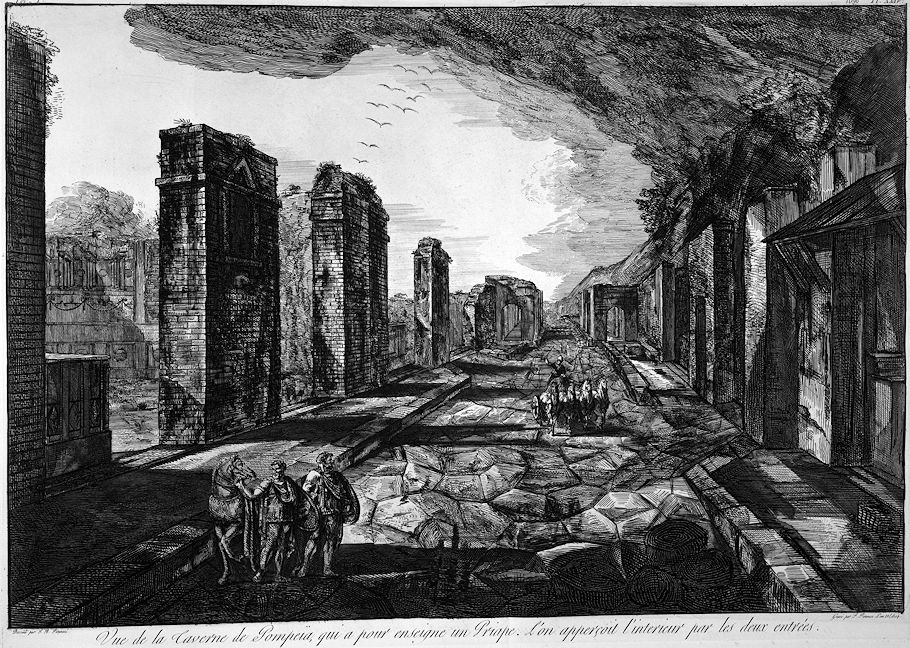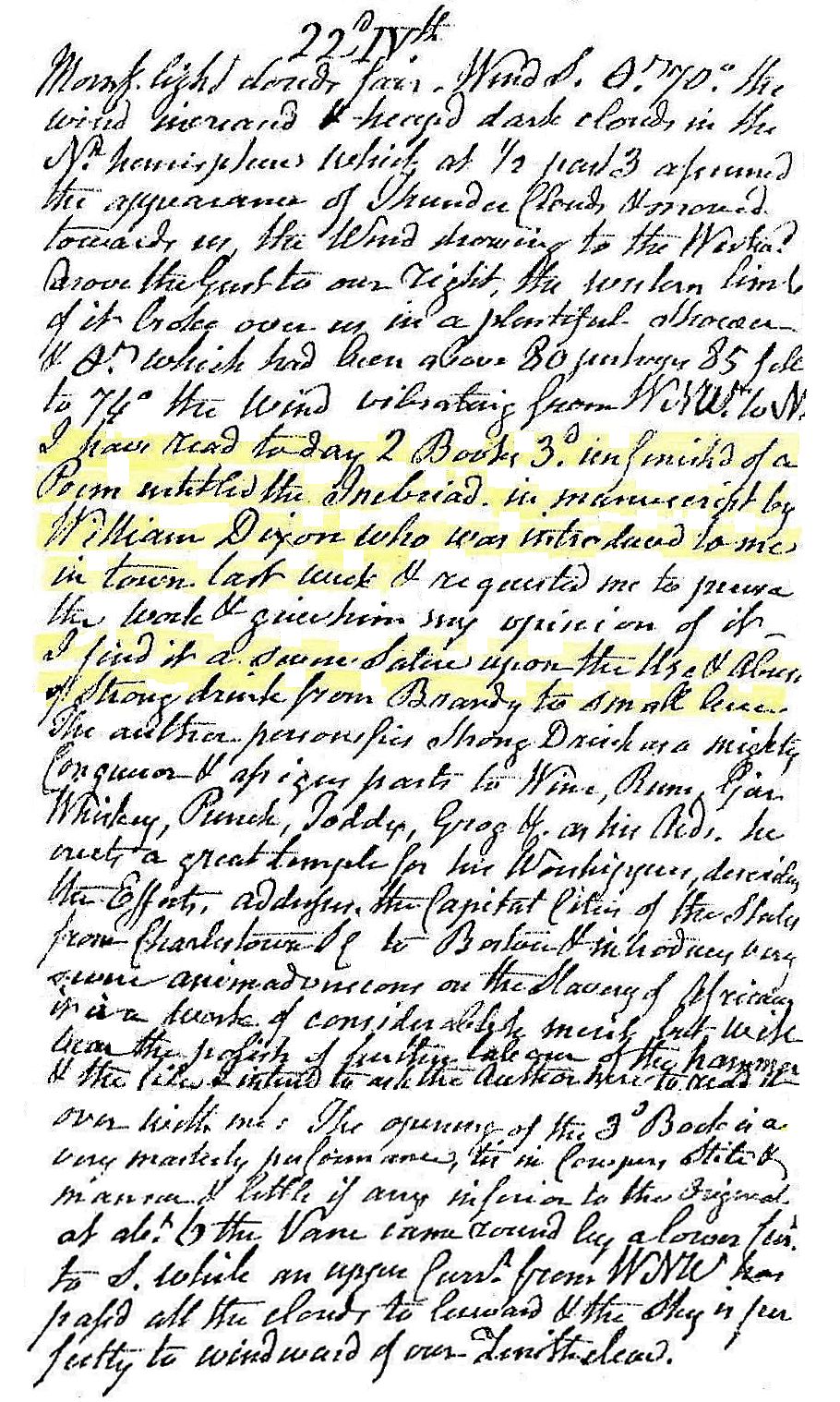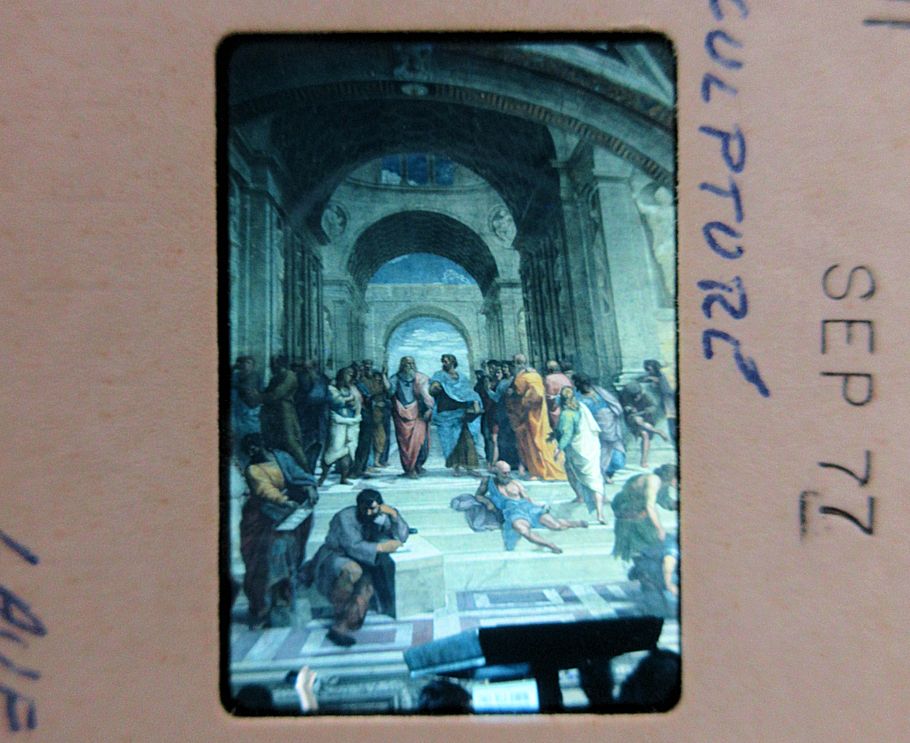22 July 1778 Wednesday
. . . . . .
Artifacts of the Bianconi vs Piranesi 'Circus of Caracalla' affair 1772-1789
Giovanni Lodovico Bianconi's "Elogio Storico del Cavaliere Giovanni Battista Piranesi Celebre Antiquario ed Incisore de Roma" (1779)
paragraph one
Anyone who could write the tumultuous life of Giambattista Piranesi with freedom and decency would make a book no less tasty, nor less greedy than the one that the famous Benvenuto Cellini wrote about himself. We will limit ourselves to giving as brief an essay as possible, in which, if we will not tell all the truths, we will at least try to make sure that everything we say is true.
46 y.o. Francesco Piranesi 1804
Le Antichità della Magna Grecia Parte I

View of the Tavern of Pompeii, whose sign is a Priapus. You can see the interior through the two entrances.
Drawn by G.B. Piranesi
Engraved by F. Piranesi Year 12 (1804)
22 July 1812 Wednesday

Morning light clouds, fair, wind S, temperature 70°. The wind increased and heaped[?] dark clouds in the northern hemisphere, which at 1/2 past 3 assumed the appearance of thunder clouds and moved towards us. The wind drawing to the west ..... rose the gust to out right. The western limb[?] broke over us in a plentiful shower, and temperature, which had been above 80, perhaps 85, fell to 74°, the wind vibrating from WNW to N. I have read today 2 books, third unfinished of a poem entitled The Inebriad in manuscript by William Dixon who was introduced to me in town last week and requested me to pursue the work and give him my opinion of it. I find it a severe satire upon the use and abuse of strong drink from brandy to small .....[?]. The author personifies strong drink as a conqueror and assigns parts to wine, rum, gin, whiskey, punch, toddy, grog, etc. as his aids. He erects a great temple for his worshippers, describing the efforts. Addresses the capital cities of the States from Charletown SC to Boston and introduces very severe ani..........[?] on the slavery of Africans. It is a work of considerable merit, but will bear[?] the polish[?] of further labour of the hammer and the file. I intend to ask the author here to read it over with me. The opening of the third book is a very masterly performance, tis in Cowper's state and manner and little if any inferior to the original. At about 6 the vane came round by a lower current to S while an upper current from WNW has passed all the clouds to leeward and the sky is perfectly to windward of our zenith clear.
22 July 2015
       
Cubist ICM
22 July 2021

digital snap-shot of a photo slide on a light table
22 July 2021

22 July 2023 Saturday
It turns out Hélène Gregoroffsky Fisher's young adult life in St. Petersburg, before and after her marriage to Miers Fisher, Jr., was quite comfortable if not also privileged, for example, a future President and First Lady of the United States attended the funeral of Miers Fisher, Jr., and thus, may have attended the wedding of Miers Fisher, Jr. and Hélène Gregoroffsky as well. Louisa Adams, even, may have played some part in the matchmaking.
From The United States and Russia: The Beginning of Relations 1765-1815 (Washington, D. C.: Department of State. 1980), pp. 969-71:
From a Letter of John Quincy Adams to Alexander Hill Everett
St. Petersburg, [May 29] June 10, 1813
Dear Sir,
In October last I wrote you, acknowledging the receipt of your favour of the preceding August from London, which had been brought by Mr. Poletica. As you had not mentioned your intention of returning immediately to the United States, I had remained uncertain whether you were in Europe or in America, until I had the pleasure a very few days since of receiving your letter of 12 February, by which I was happy to learn that you had reached again our own country and were settled in the career which I hope will lead you to fortune and honour, at least to as liberal a portion of them as the wishes of a philosopher and Christian can ask.
The interest which the last year was taken by our countrymen in the Russian war was in itself natural and laudable. As Russia was then invaded, the friends of humanity and of the general cause of national independence could not but strongly sympathize with her. And the well-meaning people of whom you speak, who had been drilled into the terror of an invasion of our territory by Bonaparte, might have a selfish or a patriotic feeling engaged on the Russian side, independent of their sentiments of regard and attachment for this nation, with which we have none but useful and friendly relations. At present they may dismiss all concern for the safety and independence of Russia, and unless they have a predilection for bugbears beyond the reach of events, they may breed their children without fear of having them taken for the conscription of St. Domingo. Dean Swift, I think in the art of political lying, advises that the French King and universal monarchy should be laid up in ordinary and brought out like the bears only once or twice a year on great occasions. The French Emperor may soon be committed to the same repose, and if the Don Cossacks had no other duty but to shield us Americans from the length of his sword, Mr. Eustaphieff might send them back to their steppes ....
We performed yesterday the melancholy office of following the remains of our friend Fisher6 to the grave. His death, which happened last Sunday morning, was rendered afflictive by circumstances of severe aggravation. He had been married on Friday, less than 40 hours before his disease, to a Miss Gregorofsky,7 a relation of Mrs. Krehmer's, and whom you may perhaps have known. He had been for several days suffering a severe and constant headache, and on going out of his house alone, fell upon the steps of his door, where he must have been ten or fifteen minutes before he was discovered. Dr. Leighton was immediately called to his assistance, but life was irrevocably gone. The funeral service was performed by Dr. Beresford at the English Church, to which we have in the course of the last and present year been many times summoned on the like mournful occasions ....
6. Miers Fisher, Jr.
7. According to a letter to Bainbridge and Brown of London from Miers Fisher, Jr.'s partner, John Venning, May 27/June 7, 1813, Helen Gregorofskii was the niece of English General Alexander Focke, who fought on the side of Russia against the French at the passage of the Berezina. The marriage "was allowed to take place by the gracious condescension of the Emperor Alexander without his [Fisher's] being subject to the various regulations of the Greek Church, and although a foreigner marrying a Russian lady subjects the children to adopt the Greek faith, yet it was waived by Imperial authority, notified by a letter in the Emperor's own handwriting. You cannot conceive the sensation it has created in this town among all ranks." (Attachment to a letter from Samuel R. Fisher to Thomas Rotch, November 3/15, 1813, FHLSC, Rotch-Wade Papers)
News of Fisher's death was published in the Boston Gazette and reached his family through his brother, Redwood Fisher, who had been in Europe. (FHLSC, Journals of Miers Fisher, Sr., Entry for September 30, 1813) His widow died in Cincinnati, Ohio, on April 9, 1828. Copies of letters from Miers Fisher, Jr., to Helen Gregorofskii during the period from May 1812 to May 1813 are in the private collection of Lee H. Pierce, Cambridge, Massachusetts.
From Michael O'Brien, Mrs. Adams in Winter: A Journey in the Last Days of Napoleon (2010), p. 32:
It was among expatriate merchant and professionals that Louisa Adams mostly lived. Prominent among them were the Krehmers. Mrs. Adams remembered the banker Sebastian Krehmer as Swedish, but he was a Baltic German from Narva, and his "particularly kind" wife, Anna Dorothea (known as Annette), came from an Anglo-Russian merchant called Smith. Both made a habit of befriending visiting British and Americans. With these, the Krehmers could speak freely, since the habitual language of their own household was English and they had an adopted Russian daughter, Helen Gregorofskii, who was to marry in 1813, by the tsar's special consent, a Philadelphia merchant called Miers Fisher, Jr. (He died a scant forty hours after their nuptials.) One of the Krehmers' daughters, Sarah, was in 1814 to marry an Englishman named Thomas John Gisborne, who worked for the British Embassy, was later an agent for Lloyd's underwriters, and was the son of Thomas Gisborne, an English moral philosopher and opponent of the slave trade. These facts help to explain why, almost as soon as Mrs. Adams reached the city and was grimly lodged in the Hotel de Londres, Annette Krehmer came to call, took a great interest in Charles Francis, sitting prettily on his mother's knee, and went away to dispatch "every requisite for our toilet . . . sent with a Note" expressing "a wish that we would make a free use of the Articles as long as they could be convenient with a large supply for the Child she having one of the same age." A few days later, Mrs. Adams and Catherine Johnson returned this call and went with Mrs. Krehmer to milliners, mantua-makers, and furniture shops. Over the years, they became if not intimate then very friendly, and frequently Mrs. Adams visited the Krehmers' country residence in Octa, which was in the Vibourg district, about four miles from the city. They were also habitués of the Krehmers' large town residence, where an evening party of fifty might be thought small. It was from an apartment owned by Sebastian Krehmer and recently inhabited by Thomas John Gisborne that Mrs. Adams left for Paris in 1815.
|